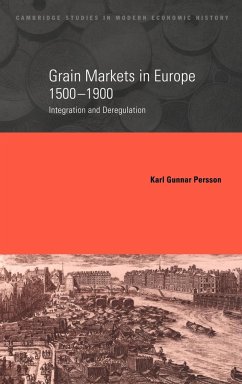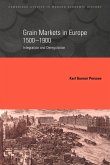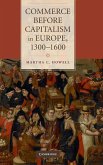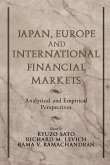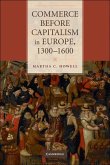Karl Gunnar Persson surveys a broad sweep of economic history, examining one of the most crucial markets - grain. His analysis allows him to draw more general lessons, for example that liberalization of markets was linked to political authoritarianism. Grain Markets in Europe traces the markets' early regulation, their poor performance and the frequent market failures. Price volatility caused by harvest shocks was of major concern for central and local government because of the unrest it caused. Regulation became obsolete when markets became more integrated and performed better through trade triggered by falling transport costs. Persson, a specialist in economic history, uses insights from development economics, explores contemporary economic thought on the advantages of free trade, and measures the extent of market integration using the latest econometric methods. Grain Markets in Europe will be of value to scholars and students in economic history, social history and agricultural and institutional economics.
Table of contents:
1. Bread and enlightenment: the quest for price stability and free trade in 18th-century Europe; 2. Markets, mortality and human capabilities; 3. Harvest fluctuations, storage and grain price responses; 4. Market failures and the regulation of grain markets: a new interpretation; 5. Market integration and the stabilization of grain prices in Europe 1500-1900; 6. Authoritarian liberalism and the decline of grain market regulation in Europe 1760-1860.
This is a modern economic and institutional history of European grain markets. This book examines the markets' early regulation, their poor performance and the frequent market failures. Using insights from development economics and econometrics, Persson also extracts general lessons from this survey of the grain trade.
This book is a modern economic and institutional history of a crucial market.
Hinweis: Dieser Artikel kann nur an eine deutsche Lieferadresse ausgeliefert werden.
Table of contents:
1. Bread and enlightenment: the quest for price stability and free trade in 18th-century Europe; 2. Markets, mortality and human capabilities; 3. Harvest fluctuations, storage and grain price responses; 4. Market failures and the regulation of grain markets: a new interpretation; 5. Market integration and the stabilization of grain prices in Europe 1500-1900; 6. Authoritarian liberalism and the decline of grain market regulation in Europe 1760-1860.
This is a modern economic and institutional history of European grain markets. This book examines the markets' early regulation, their poor performance and the frequent market failures. Using insights from development economics and econometrics, Persson also extracts general lessons from this survey of the grain trade.
This book is a modern economic and institutional history of a crucial market.
Hinweis: Dieser Artikel kann nur an eine deutsche Lieferadresse ausgeliefert werden.

